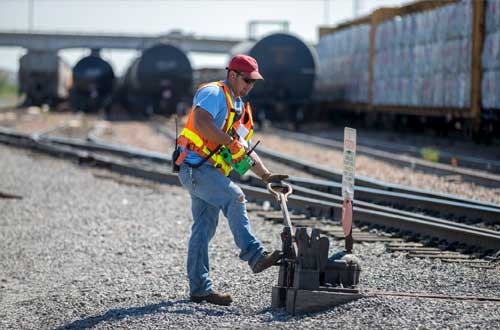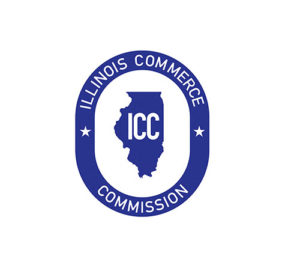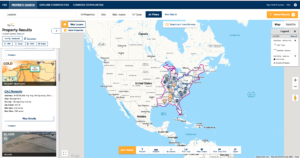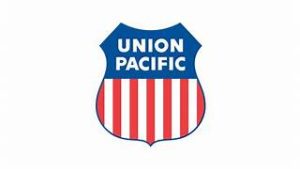UP achieves seven-percent derailment decrease
Written by Jenifer Nunez, assistant editor
Union Pacific says training, technology and investments helped the railroad improve safety in 2014, which reduced its reportable derailment rate seven percent. UP improved its reportable derailment rate to 3.0 from 3.24 in 2013 and has improved this rate 38 percent over the past 10 years.
“Nothing is more important than the safety of our employees and communities,” said Bob Grimaila, Union Pacific vice president safety, security and environment. “We invested $4.1 billion in 2014 in our network and operations, enhanced already solid track inspection processes and technology and broadly deployed creative employee training initiatives to continue our journey to zero derailments.”
UP says innovative employee training made a direct impact on decreasing derailments and enhancing overall safety. The railroad deployed illustrative training videos on internal television systems, in training classes and on the employee intranet. These videos focused on shoving moves, where employees observe and “protect” an in-motion rail car as it is sorted and moved into a new train lineup. These shoves determine a rail car’s destination and often involve using switches that must be properly aligned to avoid a derailment.
Union Pacific invested more than $31 billion over the past 10 years to strengthen its infrastructure, technology and equipment, decreasing derailments 38 percent over the same period.
The railroad’s prevention and risk reduction process includes a variety of initiatives including using lasers and ultrasound technology to identify rail defects; forecasting potential failures before they happen by tracking the acoustic vibration on wheels and heat trends on wheel bearings; performing a real-time analysis of every rail car each time it passes a trackside sensor, equaling 20 million car evaluations per day and regular employee participation in rigorous safety training, including training to identify and prevent potential derailments.





